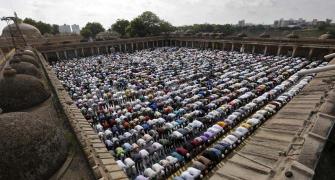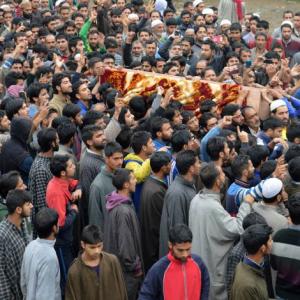'A drought is like fire. It licks everything in its wake -- crops, trees, animals, humans.' The plains of the Ganga in Bihar have a raw, unmatched, beauty but also bear the anguish of its farmers.
Archana Masih met the men who live and die by the land as Rediff.com looks at poll-bound Bihar through the lives of its people.
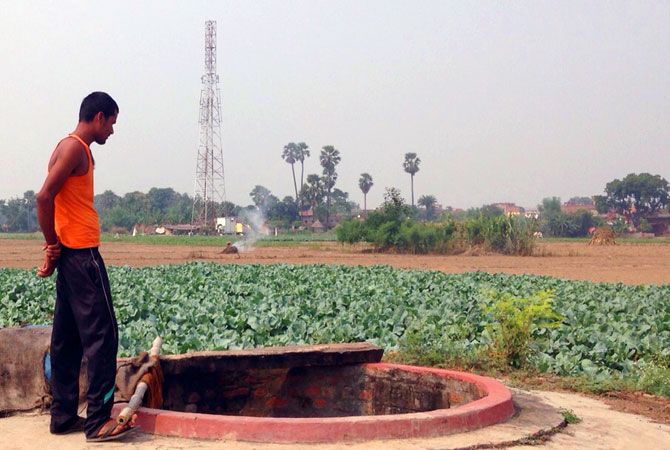
This is an old, old, village.
In the days of the British Raj, vast swathes of these fields were covered with opium plantation. Its revenue receipt in government log books goes back to the mid 1700s, says village elder Dayanand Prasad.
Today the farmers of Nevadih in Bihar's Saran district grow cabbage and potato. The drought has ravaged their fertile land. The Saryu river, which used to be just a kilometre away, has also turned its back on them. It has moved five kilometres further.
"Kisan sabsey zyada ziddi hota hai (the farmer is the most stubborn of men)," says Misrilal Singh, wearing an orange vest and dhoti, a cell phone tucked in the folds of his garment.
In spite of a bad monsoon, he says, whatever crop the farmers have forced out of their barren land is because of their relentless hard work. They have watered the land with "boring paani," which is water drawn from the ground through a bore well.
It costs Rs 150 per hour because most don't have the means to dig a bore well themselves.
But nothing can compensate for rain.
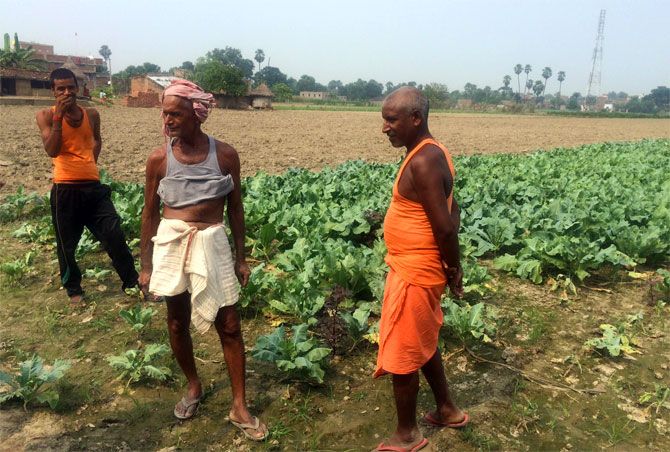
"This time the rain has failed us like never before. It hasn't even moistened our land," says Neeraj Kumar, a graduate who is farming his ancestral land and has applied for a job in the Railways a couple of times. He will join the Railways if he gets the job, there is no doubt about it, he says.
The farmers have congregated in Anuj Kumar's house. An old Rajdoot motorcycle is parked outside. A well is in the front yard. Anuj is a salesman for Mohani Tea; when he is not out in the field, he works on his land.
The farmers sit in a semi circle on top of a bed and offer tea, biscuits and dalmoth. There is no house, hut, shop that will send you away without tea and snacks in Bihar. Hospitality and warmth is ingrained in its people and they go about it with simple grace.
On the way, I have been told that this is a better-off village compared to the others in the vicinity. These farmers have some land of their own. In the poorer villages, farmers work on leased land where they pay Rs 500 to Rs 600 per kattha as rent per year. A kattha is 1/20 of a bigha.
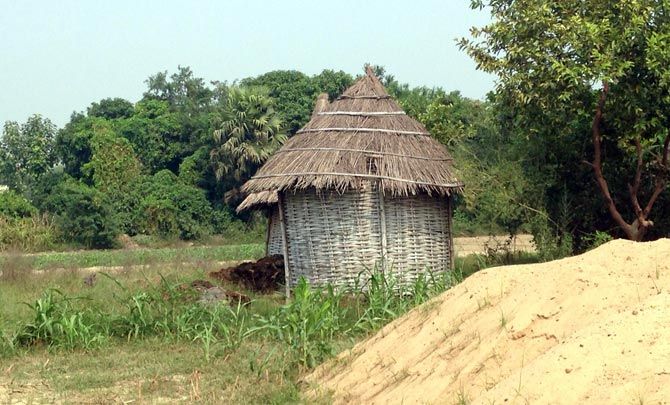
The farmers say their crop has failed this year and so severe is the drought that the next crop will be a failure too. They give full-blooded rustic analogies drawn from the rugged culture of the land they have inhabited for generations. Words that get lost in translation and are best understood in native Bhojpuri.
"Dahad chor ho la; aur sukhad aag (a flood is like a thief, but a drought is like fire)," says Lal Bahadur, a farmer who feels he has benefited because of the Jan Dhan Yojana which has helped him get a loan of Rs 25,000.
"After a flood, you can be sure that the next crop will be good, but a drought leaves you devastated long after. It is like a fire that licks everything in its wake -- crops, trees, animals, humans..."
None of them have received any drought compensation and say a government-appointed krishi salahakar (farm adviser) who is supposed to advise them about farming has not been spotted in a long time.
"He appears once in a while when pressure must be mounting on him by his babu log," says another farmer.
They say things have improved in terms of electricity and better roads, but medical facilities have not.
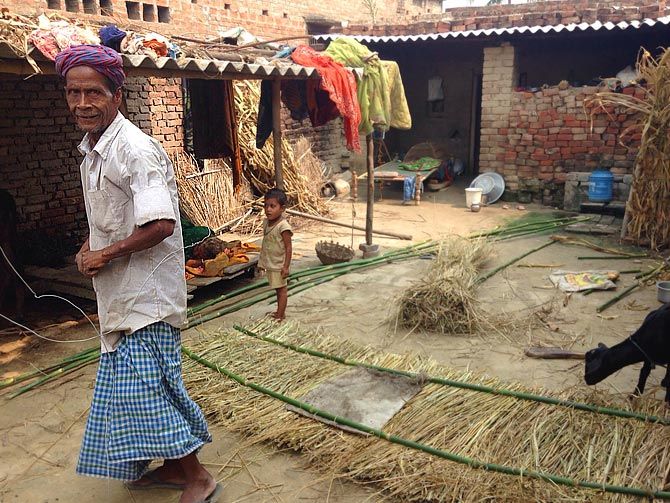
The government says it is for the kisan, but it is the kisan that has been forgotten in this vikas ki rajniti, says Neeraj.
"10 grams of seeds cost between Rs 500 and Rs 700 and fertilizer costs Rs 1,200 per kattha," he points out, "Humlog beej khareedney mein thaga jaatey hai (we get cheated in buying seeds)."
The farmers say a subsidy would be meaningful if only the government adjusted the subsidy with the seller.
"We don't want money, let the government understand this. If I pay 1,200 for fertiliser, let the government pay the fertiliser company Rs 700, so that at the shop we pay only Rs 500," says Neeraj. "Only then will a subsidy be advantageous to us."
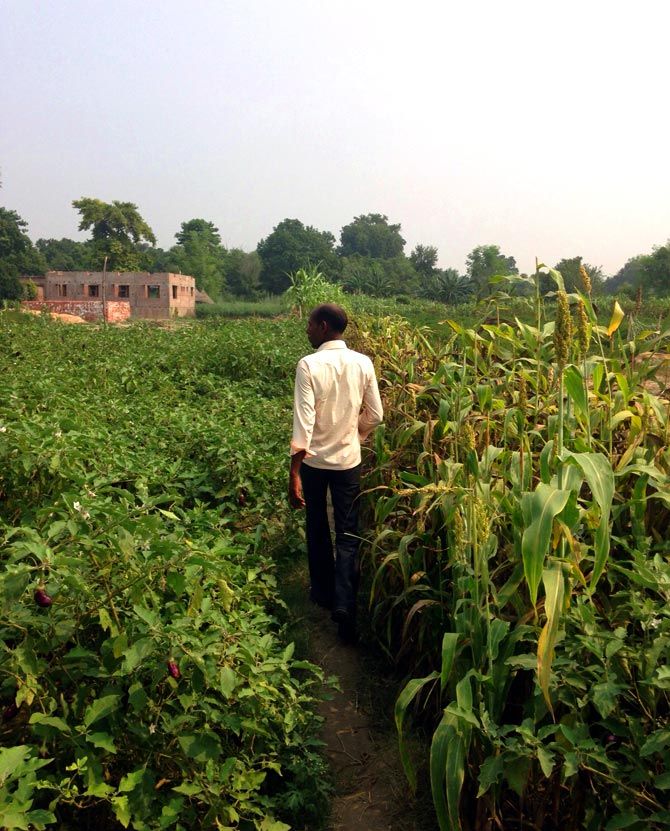
The farmers get up from the room where they have assembled, the elder ones on chairs and the younger ones on the bed, and lead me to their fields.
Dayanand Prasad, the oldest in the group, says when he was young these fields grew masoor, gehu and makka. Till a few years ago, they grew peas too, but the crop has consistently failed since then.
They show me patches of field where cabbage and brinjals grow, but sparingly. What remains is fenced to keep pigs and ghudparas (neel gai or the Indian blue bull) away. Some have placed kerosene lamps made from glass bottles that they keep lit through the night to ward the animals away.
"A ghudparas can ruin your entire field," says Suresh Prasad, standing in his cabbage patch.
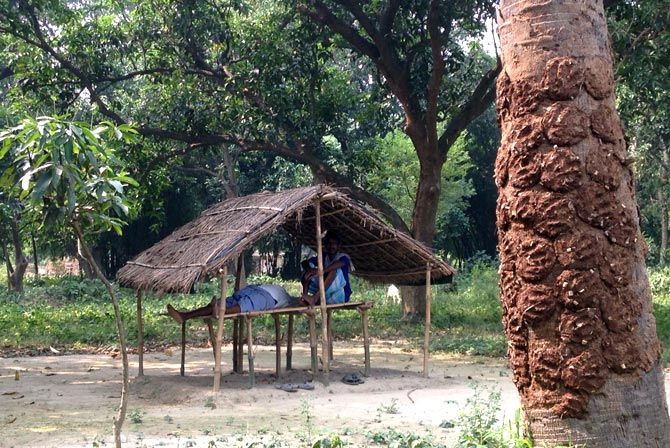
I look around the fields, the patches of green, the trees, the machans where farmers sit watching over their crops. The Gangetic plain has a raw, unmatched, beauty, but also carries the pain of its farmers.
And Misrilal captures this angst aptly: "Garibi hatao ka nara lagatey hai, par netalog aur punjipati chahta hai garib ko hi hatao (The slogan is garibi hatao, but netas and industrialists want to eradicate the poor instead of poverty)."
I AM BIHAR SERIES
- 'Once someone fired a gun at my show'
- 'No one in my family knows what IIT is'
- 'When you're in the ring, you know no fear'
- 'It's a boy!'
- A midday meal with Kareena
- 'Education gives me confidence to survive in an unequal world'
- 'They built 20 toilets. Not one is fit to be used now'
- Mobile phone has reached her, but bijli hasn't
- 'They shoo the poor as if they are dogs'

